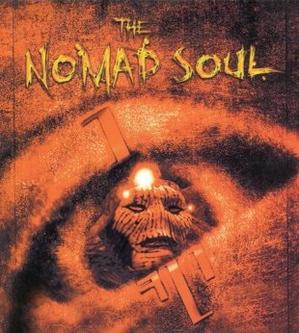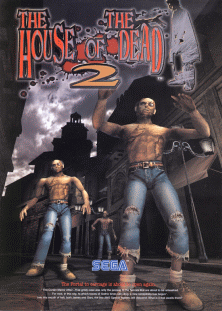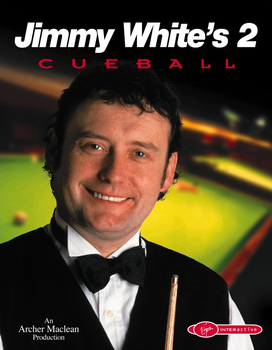
Quake III Arena is a 1999 multiplayer-focused first-person shooter developed by id Software. The third installment of the Quake series, Arena differs from previous games by excluding a story-based single-player mode and focusing primarily on multiplayer gameplay. The single-player mode is played against computer-controlled bots. It features music composed by Sonic Mayhem and Front Line Assembly founder Bill Leeb.
A killer application is any software that is so necessary or desirable that it proves the core value of some larger technology, such as its host computer hardware, video game console, software platform, or operating system. Consumers would buy the host platform just to access that application, possibly substantially increasing sales of its host platform.

Unreal Tournament is a first-person arena shooter video game developed by Epic Games and Digital Extremes. The second installment in the Unreal series, it was first published by GT Interactive in 1999 for Windows, and later released on the PlayStation 2 and Dreamcast by Infogrames in 2000 and 2001, respectively. Players compete in a series of matches of various types, with the general aim of out-killing opponents. The PC and Dreamcast versions support multiplayer online or over a local area network. Free expansion packs were released, some of which were bundled with a 2000 re-release: Unreal Tournament: Game of the Year Edition.

The Nomad Soul is an adventure game developed by Quantic Dream and published by Eidos Interactive. It was released for Microsoft Windows in 1999 and Dreamcast in 2000. The player can engage in unarmed and armed combat, explore the three-dimensional environment of Omikron City, and talk with non-player characters to progress the story. It follows an investigation into a case of serial killings, which unravels the supernatural truth behind the city's ancient history.

Millennium Soldier: Expendable, known in Japan as Seitai Heiki Expendable, and in North America as just Expendable, is a run and gun video game that was released by Rage Software for Microsoft Windows in 1999. It was later ported to the Dreamcast and PlayStation consoles. A remake of the game, entitled Expendable: Rearmed, was released for Android in 2012. It is in the format of a modern arcade game. The player starts with 7 "credits" and can continue until running out of credits. A second player can join the game at any time by pressing start.

Fur Fighters is a video game developed by Bizarre Creations and published by Acclaim Entertainment for the Dreamcast in 2000, later for Microsoft Windows. The game was first announced as a Dreamcast exclusive in the January 1999 issue of Electronic Gaming Monthly, having started development in the summer of 1998. It was designed very much as a standard third-person shooter, but used a world populated by cute little animals as its setting. As a result, the game's depiction of violence is very cartoon-like without losing any of its intensity. In 2001, an updated version for the PlayStation 2 was released as Fur Fighters: Viggo's Revenge. On 20 July 2012, members of Muffin Games, ex-Bizarre Creations staff, announced a conversion for iPad, called Fur Fighters: Viggo on Glass.

POD is a futuristic racing video game for Microsoft Windows released by Ubi Soft in 1997.

4x4 Evo is a video game developed by Terminal Reality for the Windows, Macintosh, Sega Dreamcast, and PlayStation 2 platforms. It is one of the first console games to have cross-platform online play where Dreamcast, Macintosh, and Windows versions of the game appear online at the same time. The game can use maps created by users to download onto a hard drive as well as a Dreamcast VMU. All versions of the game are similar in quality and gameplay although the online systems feature a mode to customize the players' own truck and use it online. The game is still online-capable on all systems except for PlayStation 2. This was Terminal Reality's only video game to be released for the Dreamcast.

Sega Rally 2 is an arcade racing game developed by Sega for the Model 3 arcade hardware. It is the sequel to 1994's Sega Rally Championship. The game was first released in arcades in February 1998, and was later ported to the Sega Dreamcast, becoming one of the console's earliest titles when it was released in Japan on January 28, 1999. The Sega Dreamcast version was released in Europe as a launch title on October 14, 1999, and then in North America on November 27. A PC version was released in Japan and Europe that same year, with the North American release following suit in November 29, 2000, where it was published by Mattel Interactive.

V-Rally 2 is a racing video game developed by Eden Studios and published by Infogrames for PlayStation, Dreamcast and Microsoft Windows. It was originally planned for release as a Nintendo 64 title, but was cancelled during the early development phases of the game and was never officially announced.

The House of the Dead 2 is a horror-themed light gun shooter arcade game and the second game in The House of the Dead series of video games. The direct sequel to The House of the Dead, it was developed by Sega for arcades on the Sega NAOMI board in November 1998, and it received several home ports, starting with the Dreamcast in 1999, Microsoft Windows in 2001, Xbox in 2002 as a bonus in The House of the Dead III and on Wii as part of the compilation The House of the Dead 2 & 3 Return. It would also serve as the basis for several spinoff games in the franchise, most notably The Typing of the Dead.

Hidden & Dangerous is a 1999 tactical shooter video game, developed by Illusion Softworks. It was published by Take-Two Interactive and TalonSoft, for Windows, Dreamcast and PlayStation. The PlayStation port of the game was developed by Tarantula Studios, and it is regarded as a pioneering tactical shooter. A sequel, Hidden & Dangerous 2, was released in 2003.

Maken X is a first-person hack and slash video game developed by Atlus for the Dreamcast. It was published by Atlus in Japan in 1999, while Sega localized and released the game overseas in 2000. Gameplay has the Maken—a sentient sword-like being—"brainjacking" or taking control of multiple characters across a variety of levels; combat is primarily based around short-ranged melee attacks, with some characters sporting additional abilities such as ranged attacks.

F-1 World Grand Prix, developed by Paradigm Entertainment, is a Formula One racing game/sim first released in 1998 for the Nintendo 64 game console and to later platforms including the Sega Dreamcast, Microsoft Windows, Sony PlayStation, and Game Boy Color. The Nintendo 64 version is based on the 1997 Formula One season, featuring each of the 17 circuits from the season and all 22 drivers, with the exceptions of Jacques Villeneuve and the MasterCard Lola team.

Monaco Grand Prix: Racing Simulation 2, also known simply as Monaco Grand Prix or Racing Simulation: Monaco Grand Prix, is a Formula One racing game developed and published by Ubisoft for Windows, Nintendo 64, PlayStation, and Dreamcast. It was released between 1998 and 1999. A sequel, Racing Simulation 3, was released in 2002.

Jimmy White's 2: Cueball is a snooker and pool video game developed by Awesome Developments and published by Virgin Interactive as a sequel to Jimmy White's 'Whirlwind' Snooker. It was originally released in 1999 for Windows and Dreamcast. A PlayStation version was released in 2000 in Europe and North America, with Bay Area Multimedia handling distribution for the latter territory. Archer Maclean, the designer of the original game, led the development team. The game includes mini-games connected with a pub setting. A Game Boy Color version of the game was released in 2000. A sequel to Cueball, called Jimmy White's Cueball World, was released in Europe for the PC in 2001. The game received mixed reviews from critics, with the PC and Dreamcast versions faring better than the PlayStation port.

MoHo is a video game developed by Lost Toys and published by Take-Two Interactive for PlayStation, Dreamcast, and Microsoft Windows in 2000.

European Super League is a football video game developed by Crimson and Coyote Developments and published by Virgin Interactive Entertainment for the Dreamcast, PlayStation and Microsoft Windows in 2001.

Aqua GT is an inshore powerboat racing video game developed by East Point Software and published by Take Two Interactive for the Dreamcast in 2000 and PlayStation in 2001. A PC release was previewed in PC Zone but this was not released.


















